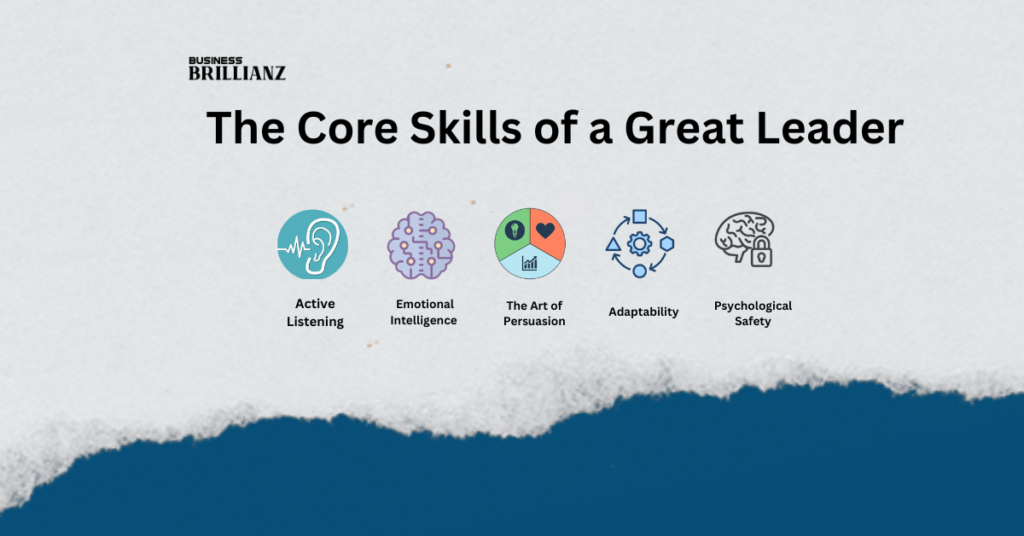Great leaders aren’t born, they’re made through practice and dedication. But what makes a leader exceptional? It’s their ability to inspire and motivate others, navigate challenges with confidence, and make thoughtful decisions. Leadership skills are the strengths and abilities that help to manage tasks, guide projects, and lead the team to achieve goals.
Here are the essential skills that need to become an outstanding leader:
- Active Listening: The Foundation of Effective Communication
- It’s about deeply understanding and engaging with what’s being said.
- It builds trust by showing that you value and respect every voice.
- Active listening and focusing helps you connect more effectively with your team.
“We were given two ears but only one mouth,
because listening is twice as hard as talking.”
– Epictetus (AD 55 – c.135)
- Emotional Intelligence (EQ): The Heart of Strong Leadership
- Emotional intelligence helps leaders make better decisions by handling their own and others’ emotions
- Build stronger relationships by understanding and managing emotions effectively.
- Create a more empathetic and unified team.
“Great leadership works through the emotions.” – Daniel Goleman
- The Art of Persuasion: Inspiring Action and Engagement
- Share ideas in a way that energizes and motivates others to take action.
- It shapes how people think and act through clear and effective
- Establishing credibility and trust with the audience makes persuasion more effective.
“Effective leadership involves the art of persuasion: communicating ideas clearly, listening actively, and motivating others to take action.” – Stephen R. Covey
- Adaptability: Embracing Change with Confidence
- Embrace growth through effort and view challenges as opportunities to learn.
- Adjust plans and strategies as circumstances change to stay adaptable and seize new opportunities.
- Build management skills, stay positive, and focus on solutions to handle setbacks and challenges.
- Practice being present through meditation and deep breathing to respond to change with clarity and composure.
“The measure of intelligence is the ability to change.” – Albert Einstein
- Cultivating Psychological Safety: Fueling Innovation
- Psychological safety helps innovation by letting team members share ideas and take risks.
- Team members must feel secure to share ideas and experiment.
- A psychologically safe environment reduces stress and burnout, enhancing job satisfaction and overall well-being.
“Leaders who prioritize psychological safety create an environment where people feel valued and are more willing to contribute their best.” – Brené Brown


